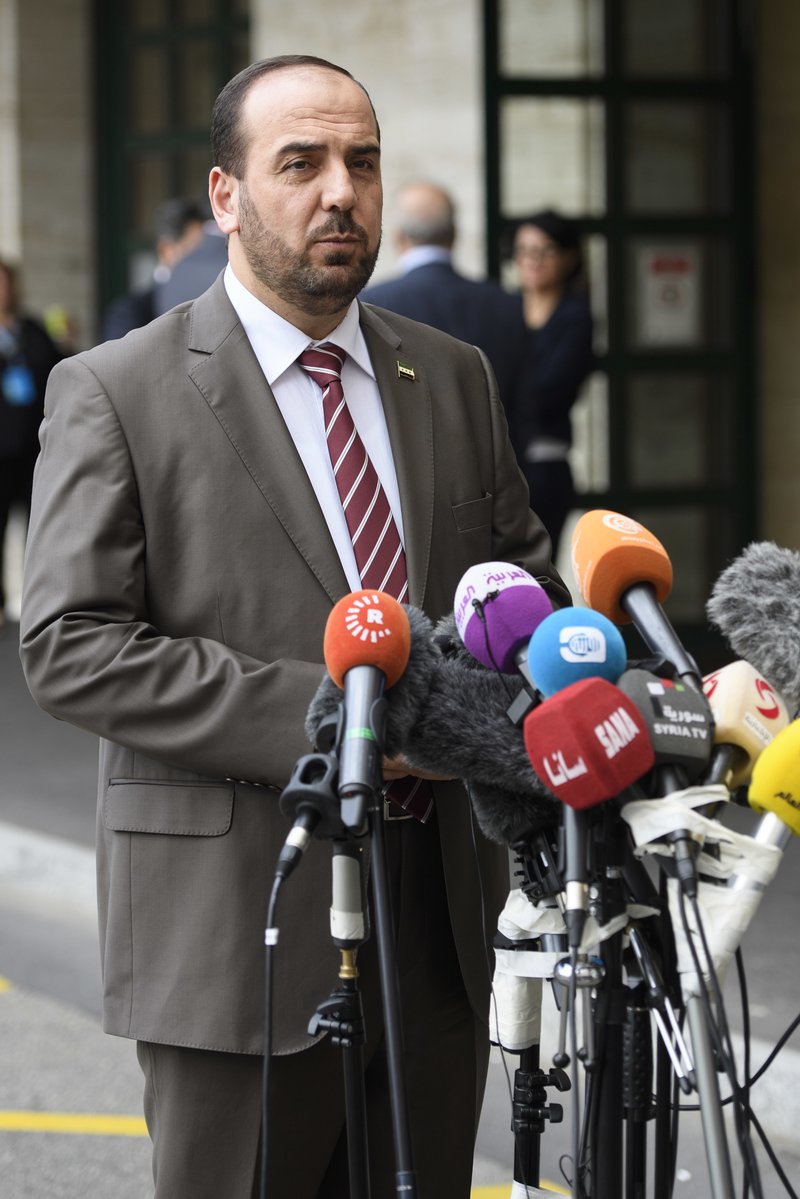BEIRUT -- The United Nations said Wednesday that it is using newly opened land routes in Syria to expand food deliveries to areas around the northern city of Raqqa, where U.S.-backed forces are battling Islamic State militants.
The new access has allowed the World Food Program to deliver to rural areas north of the city, the Islamic State's self-declared capital, for the first time in three years.
More than 190,000 people from Raqqa province have been displaced since April 1, according to the U.N.'s refugee agency. This week, hundreds of civilians managed to flee areas under Islamic State control and cross to territory seized by the U.S.-backed fighters known as the Syrian Democratic Forces, according to the Syrian Observatory for Human Rights, a monitoring group.
As the map of control changes, so does the access to the area. The World Food Program said it is now delivering food to nearly 200,000 people in eight hard-to-reach locations inside Raqqa province as well as to other areas in a neighboring province.
[THE ISLAMIC STATE: Timeline of group’s rise, fall; details on campaign to fight it]
Before the reopening of the road linking Aleppo in the west to Hasakeh in the east, the World Food Program relied on airlifts.
"Replacing airlifts with road deliveries will save an estimated $19 million per year, as each truck on the road carries the equivalent of a planeload of food at a significantly lower cost," said Jakob Kern, the World Food Program's representative in Syria.
"With these cost savings and improved access, we are now reaching more families and people" in areas where they have been able to return to their homes, he said.
One area that is now reachable is the town of Tabqa, which the Syrian Democratic Forces captured from the Islamic State in May. The World Food Program said it has been able this month to double the number of people it reaches in that town, delivering food rations to 25,000 people, many of whom have returned to their homes and are now working to rebuild their lives.
The advance toward the city of Raqqa began last year, with the Syrian Democratic Forces fighting to clear rural areas around the city. Backed by airstrikes from a U.S.-led coalition, the Syrian fighters captured Tabqa and a nearby dam in May.
The fight against the Islamic State is only one facet of the war in Syria, which is now in its seventh year. Six rounds of U.N.-brokered peace talks in Geneva have failed to bring the warring sides closer to a political settlement.
A seventh round is now underway in the Swiss city.
But on Wednesday, the head of the Syrian opposition delegation accused President Bashar Assad's government of refusing to engage in political discussions.
Nasr al-Hariri of the High Negotiations Committee also challenged the U.N. Security Council to "uphold its responsibilities" and maintain pressure on Assad to honor resolutions the council has passed. He spoke to reporters after emerging from talks with the U.N. envoy for Syria, Staffan de Mistura, in the latest round of indirect peace talks.
Security Council resolution 2254 in December 2015 called on top U.N. officials to convene the two sides "to engage in formal negotiations on a political transition process."
Also Wednesday, a human-rights group said Syrian-Russian airstrikes and artillery attacks on a town in southern Syria last month killed 10 civilians in or near a school.
Human Rights Watch said one of the airstrikes hit the courtyard of a middle school in the town of Tafas in the southern province of Daraa, killing eight people, including a child.
It said most of those killed were members of a family who had been displaced from another town.
A Section on 07/13/2017

